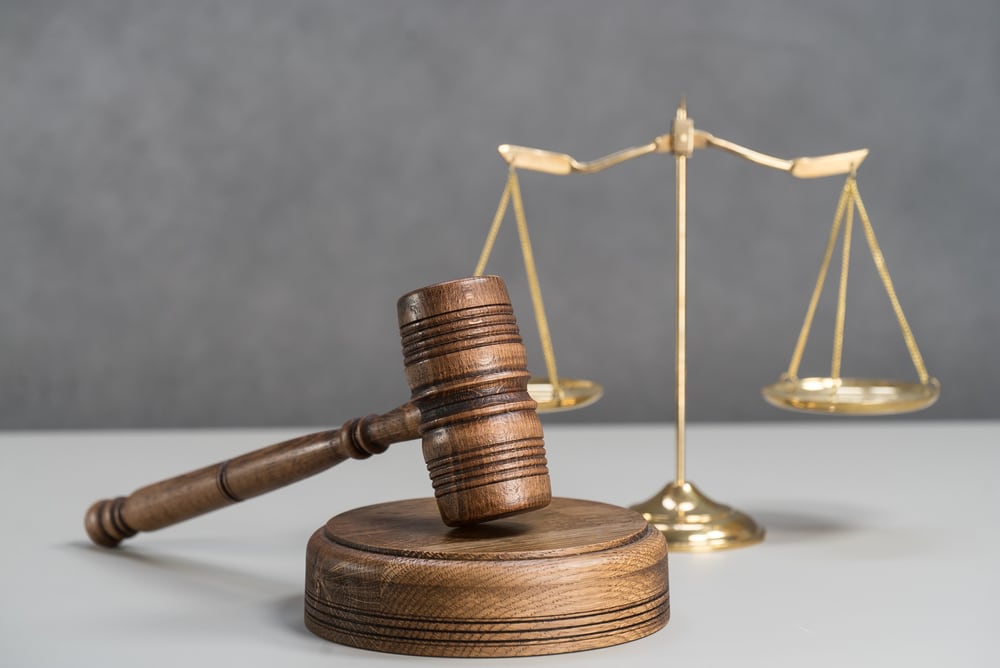How do I know if my rights have been restored in Arizona?

Arizona is among the few states that allow you to reclaim civil rights lost after a felony conviction. This includes regaining the ability to vote, hold public office, or serve on a jury. Are you unsure if your rights were automatically restored after completing your sentence? The answer can be confusing, especially with multiple felony convictions.
At the Law Office of Hernandez & Hamilton, PC, we specialize in civil rights restoration and legal services. Our team of experienced attorneys is dedicated to helping individuals understand their rights and navigate the complex legal processes in Arizona.
If you are unsure whether your rights have been restored, we are here to provide you with the necessary information and guidance. In this blog post, we discuss the key points to consider when determining if your rights have been restored in Arizona.
Understanding Rights Restoration In Arizona
After being convicted of a felony, individuals may lose certain civil rights, such as the right to vote, possess firearms, or serve on a jury. However, Arizona law provides a pathway for restoring civil rights under specific conditions. These rights include voting, holding public office, and serving on a jury.
The restoration process can be automatic or require an application to the Arizona Superior Court. Here’s a breakdown:
Automatic Restoration
If you have only one Arizona felony conviction, your rights are automatically restored upon completing probation or absolute discharge from prison, as long as all fines and restitution are paid. Firearm rights might require a separate application, especially for a serious offense.
Applying for Restoration
You can apply for restoration if you have multiple felonies or your conviction originated outside Arizona. The waiting period starts after completing probation or two years from your release, whichever comes later. All court-ordered financial obligations must be settled as well.
To check your status, contact the court where you were convicted. Utilize the online resources provided by Arizona’s court system. Make sure to consult a criminal defense attorney for specific details and legal guidance.

Eligibility Criteria For Rights Restoration
In Arizona, individuals seeking rights restoration must fulfill certain criteria to be eligible for the process. The key eligibility requirements include:
Number of Offenses
The number of felony convictions you have plays a key role. If you only have one felony and completed probation or prison (absolute discharge), your rights are likely restored automatically.
The process gets a bit trickier if you have two or more Arizona felonies or a felony from another state. You can still apply to get your rights back, but you’ll need to wait. These are the requirements:
- Completed probation or parole
- Two years since your absolute discharge from prison
- All fines and restitution must be paid
Completion of Sentence
To be considered for rights restoration, you must have completed your entire sentence, including any probation or parole periods related to your conviction. This means fully serving the imposed jail or prison term and complying with any post-release supervision requirements.
Nature of Offense
The type of offense committed may impact eligibility for rights restoration. Some offenses may have specific waiting periods or additional requirements that individuals must satisfy before being considered for rights restoration.
Individual Circumstances
Eligibility for rights restoration can also depend on individual circumstances such as the nature of the prior felony conviction, any subsequent criminal history, and other relevant factors.
Ensure that all necessary conditions are met before initiating the rights restoration process to increase the likelihood of a successful application.
The Process Of Restoring Rights In Arizona
Restoring your rights in Arizona involves navigating a structured process if you have a felony conviction.
Assess Your Eligibility
First, you need to determine if you meet the eligibility criteria. This includes completing your sentence, meeting court-ordered obligations, and having a clean legal status.
Submit Your Application
Once you confirm your eligibility, submit a formal application for rights restoration to the appropriate authority, often the state’s Board of Executive Clemency or a similar entity. Notably, restoring gun rights requires a separate application, even for a first felony conviction.
Your Application is Reviewed
Authorities carefully review your application, examining your criminal offenses history, rehabilitation efforts, and compliance with legal requirements.
Await a Decision
Based on the assessment, authorities decide whether to restore civil rights. Factors like the nature of your felony conviction and your commitment to rehabilitation are considered.
Receive Notification
You’ll be notified of the decision regarding your application. If approved, you regain your rights, such as voting privileges, firearm possession, and jury service.
Maintain Compliance
Even after rights restoration, you must continue to follow the law and fulfill any remaining legal obligations to keep your restored rights status.
That said, this process isn’t straightforward, it can be draining. Consider seeking legal guidance from an Arizona attorney for specific details and to ensure a smooth restoration process.
Consequences of Restored Rights
Upon successfully restoring your rights in Arizona, you regain various privileges crucial to full citizenship.
Voting Rights
Once your rights are restored, you regain the fundamental right to vote in local, state, and national elections. Voting rights allow you to actively participate in the democratic process and have a voice in shaping the future of your community and country.
Eligibility for Public Office
Restoration of civil rights opens up opportunities for you to become eligible to hold public office. This means you can pursue positions in various governmental capacities, contributing to decision-making and public service.
Firearm Possession Privileges
With your rights restored, you may regain the ability to legally possess firearms in accordance with state and federal law. This can be essential for various purposes such as self-defense or employment in certain fields.
Enhanced Reintegration
The consequences of restored rights lead to your full reintegration into society. By regaining these fundamental rights, you have the opportunity to engage more fully in civic life, pursue various opportunities, and actively contribute to your community.
Responsibilities and Compliance
While restored rights offer newfound freedoms, they also come with responsibilities. Upholding the law and adhering to legal requirements is essential to maintaining these restored rights and avoiding potential consequences.
Overall, the consequences of restored rights in Arizona encompass both rights and responsibilities, emphasizing the importance of active citizenship and lawful behavior.

Documents and evidence required for rights restoration in Arizona
The documents you’ll need for restoring your rights in Arizona depend on your situation. In most cases, you likely won’t need to submit any documents for automatic restoration after a first-time felony. However, having proof of completing probation or prison (absolute discharge) and documentation showing all fines and restitution are paid can be helpful.
When applying for restoration, gather these documents:
- Proof of Conviction(s): A copy of your judgment order or federal court documents detailing your felony conviction(s) to show conviction occurred.
- Completion of Probation or Parole: Documentation showing you completed probation or parole for all your convictions.
- Absolute Discharge Papers (if applicable): If you served prison time, you’ll need a certificate of absolute discharge from the Arizona Department of Corrections or written proof you requested it.
- Proof of Fulfilled Financial Obligations: Documentation showing all court-ordered fines, restitution, and fees have been paid in full.
- Additional Documents (depending on the situation): For multiple felonies or out-of-state convictions, you may need additional paperwork like court documents from other states.
Also, while not mandatory, some evidence can strengthen your application:
- Character references: Letters from employers, mentors, or community members demonstrating your positive rehabilitation.
- Proof of employment or education: Documentation showcasing your commitment to stability and positive contributions to society.
Ultimately, the specific documents required may vary depending on your circumstances. For a complete and accurate picture, consult an Arizona attorney for the latest guidelines.
Common Challenges Faced In The Restoration Process
Regaining your civil rights in Arizona can be rewarding, but the process isn’t always straightforward. Here are some challenges you might encounter in the restoration process:
Meeting Deadlines
Applications often have strict deadlines, and missing them can delay the process. Careful planning and organization are key.
Gathering Documents
Obtaining court records, discharge papers, and proof of financial completion can be time-consuming, especially for older convictions.
Lengthy Review Periods
The review and evaluation of rights restoration applications may entail lengthy waiting periods, leading to prolonged uncertainty.
Psychological Impact
The emotional toll of confronting past mistakes and undergoing scrutiny during the restoration process can be stressful and overwhelming. This is especially true if serious physical injury is sustained or a dangerous offense is committed.
These challenges can be overcome with the right support. Consider seeking help from professional lawyers or legal aid organizations.
Resources And Support For Individuals Seeking Rights Restoration
Several resources and support services are available to assist individuals going through the rights restoration process in Arizona. These include legal aid organizations, community outreach programs, and online guides like 211 Arizona that offer information and guidance.
For personalized assistance and expert legal representation, consider working with the Law Office of Hernandez & Hamilton, PC. Our experienced attorneys specialize in rights restoration cases and can provide the support and advocacy needed to navigate the process successfully. Contact us today for a consultation and start your journey towards reclaiming your rights.





